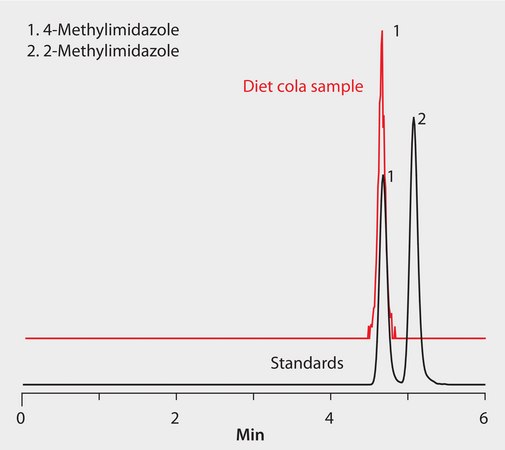HPLC Analysis of Methylimidazoles in Diet Cola on Ascentis® Express HILIC

Materials
related product
CONDITIONS
column
Ascentis Express HILIC, 10 cm x 2.1 mm I.D., 2.7 μm particles (53939-U)
mobile phase
2 mM ammonium formate in 5:95, water:acetonitrile, to pH 4.4 with formic acid
flow rate
0.6 mL/min
column temp.
50 °C
detector
ESI(+), 50-800 m/z
injection
1 μL
sample
200 mg/L in methanol
Description
General description
This method features fast analysis of methylimidazole derivatives used in caramel-colored carbonated beverages.
Analysis Note
The purpose of this study was to develop a fast analytical method for analyzing for 2-methylimidazole and 4-methylimidazole in caramel colored carbonated beverages. The FDA has recently increased the awareness of the potential hazards of methylimidazole. These compounds can be found in caramel additives used in a broad range of food stuff. In this study the focus is the levels of methylimidazole in various colas. Methylimidazoles are a difficult group of compounds to analyze due their polar nature and low molecular weight. Traditional reversed phase separation are unsuccessful in retaining these small polar compounds, with most methods utilizing ion-exchange resins for analysis. Other common methods are GC analysis with sample derivitization.
Legal Information
Ascentis is a registered trademark of Merck KGaA, Darmstadt, Germany